I have two sets of extracted points (each element of points set include (x,y) coordinates) in two different image (d:database image, q:query image), each set may have a different number of points (d={(xj,yj)}, where j=1:n) and (q={(xi,yi)}, where i=1:m). I have to check those points that they are spatially consistent between two sets. Your help is appreciated.
This is the representation of two point sets:
This is d, and red point in the center is object center:
and this is q:
How to find (the indices of matched points in two sets) those points that they have similar positions relative to the center of d? How to match these two sets of points and find those that they are spatially consistent (similar position) relative to the center?

